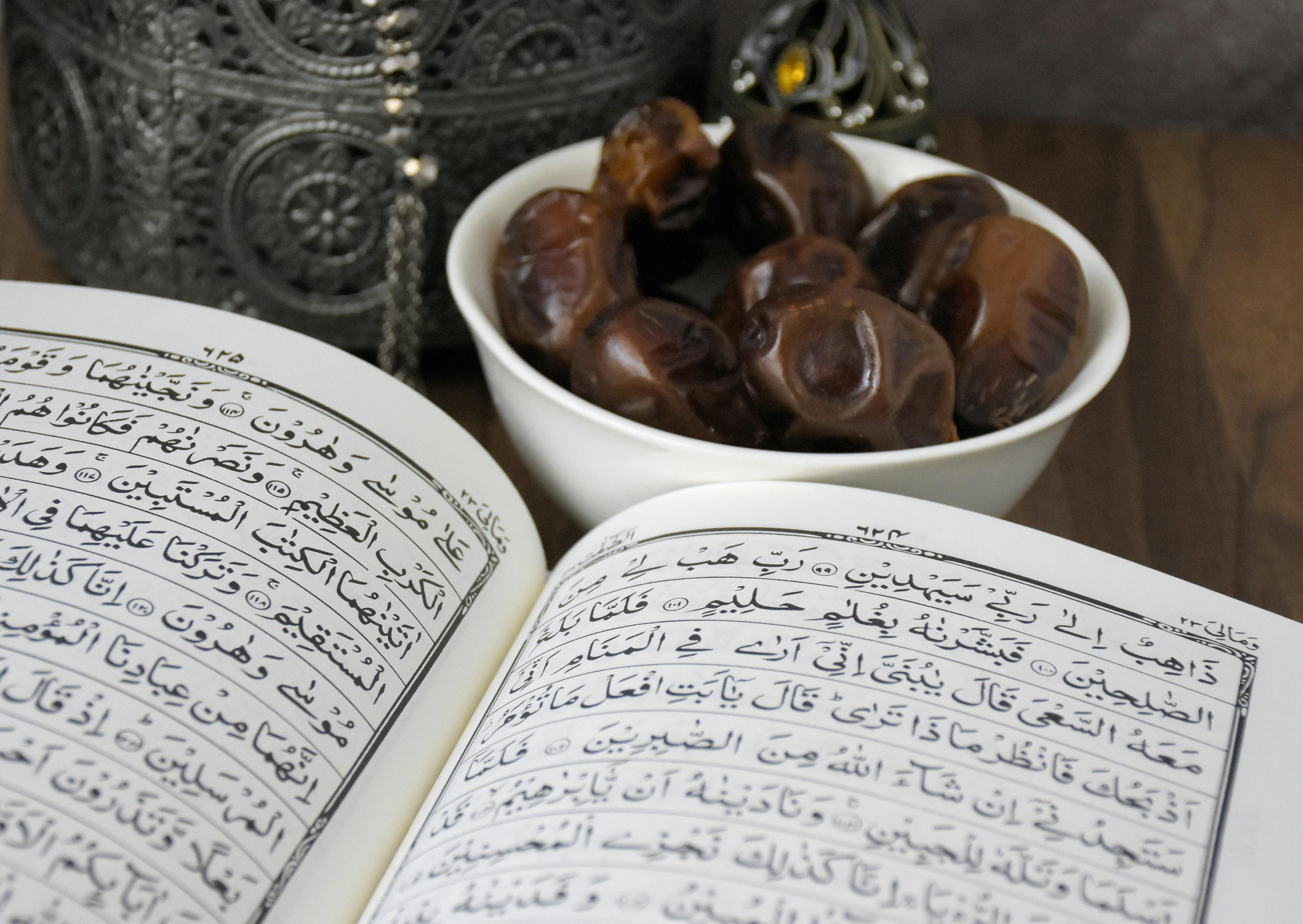Elevate Your Faith: Simple Steps to a Stronger Iman
With the constant distractions and demands of our daily routines, maintaining faith with our fast paced lives can be challenging, but its maintenance is essential as being a Muslim isn't just about identity, it's about regularly putting in effort to keep our faith potent and growing. Fortunately, nurturing our Iman doesn't need drastic changes and doesn't have to be time intensive, rather we can incorporate small and simple habits that can have profound effects and bring us closer to Allah. These can include daily prayers, practicing Dhikr or fasting outside of Ramadan.
Prayer
Taking a few moments for remembrance offers a much-needed break from life's demands, helping us reconnect with our Creator. It not only calms the mind but also helps us grow spiritually in profound ways. In Islam, the Holy Quran and the Prophet (PBUH)’s sunnah are the fundamental sources of guidance and If we are to further study and understand the sunnah of the Prophet (PBUH), we can easily interpret the numerous additional forms of worship he used to do to get closer to Allah and increase the amount of good deeds (hasanat) he performed. One example can be; Nafl Prayer. This translates to “optional prayer”. It is a form of non-obligatory prayer that Muslims carry out to gather extra reward.
As Muslims, we know how essential prayer is for every aspect of our lives. It strengthens our faith, purifies our hearts, and keeps us spiritually grounded. Without prayer, a person's spiritual life feels incomplete, as it is the core of our connection with Allah. Through prayer, we develop a deeper awareness of God, show compassion to others, and nurture inner piety. It’s the foundation of our faith, the most visible and sacred act that keeps us close to Allah. As the Quran reminds us, prayer is essential in guiding us on the path of righteousness,
“Successful indeed are the believers: They who are during their prayer humbly submissive [khaashi‘oon]” [23:1-2]
Salah, the second pillar of Islam, is an invaluable gift from Allah (SWT) to His servants. As a cornerstone of a Muslim’s faith, Salah undeniably offers a multitude of benefits encompassing physical, spiritual, and mental well-being. Since Nafl prayers are non-obligatory, not performing them is not a form of sin, however they do help in increasing your number of good deeds and better your spiritual health.
To learn a bit about the types of nafl prayers, check out our previous blog: Beyond the Basics: Unlock the Power of Non-Obligatory Prayers
Fasting
We often associate fasting in Islam primarily with the month of Ramadan, but fasting goes beyond that—it’s an act of worship with its own unique value, regardless of the time of year. When we think of the rewards for fasting, we tend to focus solely on those linked to Ramadan. However, there are numerous other benefits and rewards of fasting throughout the year that we may not even be aware of, or that aren't always as obvious, yet hold deep significance in our lives.
For instance, one example of the reward of fasting outside of Ramadan is found in a hadith where the Prophet (PBUH) mentioned a special gate in Jannah called “Bab al-Rayyan.” This gate is reserved exclusively for those who excel in fasting, offering them a unique honor in the afterlife. This highlights just how significant fasting is, not only during Ramadan but all year round.
The Prophet (ﷺ) said,
Similarly, another recording of a hadith further reinforces the rewards gained of fasting outside of the month of Ramadan. The Prophet Muhammad (PBUH) said,
A natural part of being human involves fulfilling our basic needs. When Muslims choose to fast by taking a break from their needs and desires, it symbolizes and strengthens their self-restraint and patience, as fasting is literally an act known as “ صَبْرٌ” (As-Sabr or Patience), which in turn helps create space for deeper reflection and clearer focus on their true purpose in life – worshiping Allah. Narrated by Abu Huraira: Allah's Messenger (PBUH) said,
Muslims are encouraged, though not required, to observe voluntary fasts on days like Mondays and Thursdays, and can fast any day except Eid. Fasting six days in Shawwal is also highly recommended, as the Prophet Muhammad (peace and blessings of Allah be upon him) said:
Beyond Ramadan, fasting helps with self-discipline and control, while also deepening humility before Allah and building empathy for those facing hunger or poverty. Plus, fasting acts as a shield, protecting us from sins and the fire. Ultimately, helping in significantly strengthening our faith.
Dhikr
Dhikr, or remembrance, covers a wide range of practices in Islam. At its core, it means to remember, mention, or invoke, and in the Islamic context, it refers to remembering Allah through specific phrases, prayers, or reflections. Dhikr can be done in different ways – whether verbally, in our thoughts, or even physically, like in the act of Salah (prayer), which is a form of Dhikr. Together, Dhikr, Salah, and other ways of remembering Allah (SWT) all fall under the broader concept of ‘taqwa,’ or God-consciousness.
The importance of Dhikr is emphasized many times in the Qur'an. One of the most notable references comes from a verse where Allah reminds us of its significance.
"So remember Me; I will remember you." [2:152]
This verse highlights the reciprocal nature of Dhikr—when a believer remembers Allah, Allah, in turn, bestows His mercy and blessings upon them. The following verse accentuates how prayer is the most basic route to getting guidance, protection, and response from The All Mighty.
Similarly, numerous Ahadith highlight the virtues of Dhikr. The Prophet Muhammad (PBUH) said,
Evidently, this simple yet profound act is highly valued in Islam, as it keeps the believer connected to their Creator at all times.
References:
- https://sunnah.com/bukhari:1896
- https://sunnah.com/bukhari:2840
- https://sunnah.com/bukhari:1904
- https://legacy.quran.com/2/153-159

Share:
3 Best Supplications To Boost Faith
Significance Of The Month Of Rabi Ul Awwal